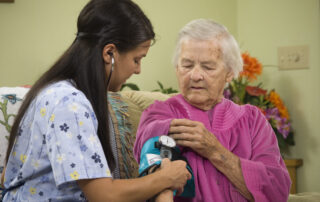State-by-State Earnings for American Indian and Alaska Native Women: Wage Gaps Across the States
American Indian and Alaska Native (AIAN) women have made important advances socially, economically, and politically—they are starting their own businesses, getting elected to congress, and serving essential roles in their families and communities. Despite their efforts, they continue to face a range of obstacles to their and their family’s economic wellbeing and overall economic security.











